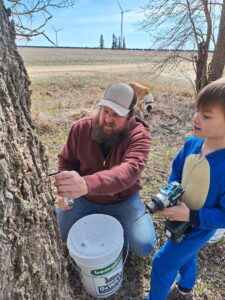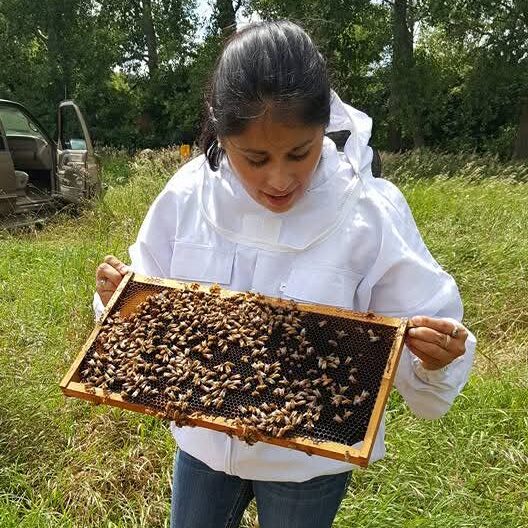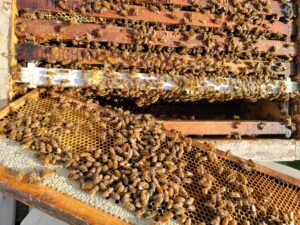Ag Experience Insider: Lessons From The Hive
What does a six-year-old with a handful of screws and a hive full of bees have in common? More than you’d think. Keep reading as The Cidery at Blackshire Farms explains the surprising lessons in purpose, work, and community!
Work Begins At Birth
Over the past year, as we’ve worked to remodel a building and open the Cidery, our son Cedar has been putting in a lot of hours with Sean — sometimes because we don’t have childcare and he has to, and sometimes because he wants to help carry wood or screws or be part of a project. When the days get long, or the work is boring, we remind him that on more traditional farms, kids take on many responsibilities much earlier. Lately Marcella has been thinking about “work” in relationship to her bees, creatures who emerge from their cells with specific jobs.

The honeybee’s summer lifecycle is roughly 45 days. This short existence means bees start working, cleaning the waste out of the cell they came from, as soon as they’re out of the cell. By day 5 they’re responsible for feeding younger bees. Around the 2-week mark they’re sourcing food, producing wax, making cells and cleaning the hive as needed. By the time they’re three weeks old, bees are on guard duty, protecting the hive from intruders such as skunks, badgers or beekeepers. This summer Marcella has been beekeeping with an injured leg, making her slow and clumsy. She’s gotten stung three times by these guard bees who are rightfully protecting the honey they and their sisters work so hard to produce.
And yes, they are all sisters, born of eggs laid by one queen, who they will die for. While there are male bees in the hive right now, these drones exist only to mate. When the weather turns cold later this fall, the girls will kick them out to save space and fuel for the hive.
Sweetness Through Labor

Despite this action, bees are eusocial, meaning three things: they cooperatively share in caring for the brood, or the collective term for the eggs, larvae and pupae— baby bees in various stages of development. All bees have tasks to perform, but only the queen lays eggs, unless the hive is unhappy and usurps her, making a new queen. Being eusocial also means the hive is intergenerational in a way, with waves of new bees emerging regularly, ensuring that all tasks can be performed to keep the hive going. This isn’t too far from the goals of an intergenerational farm, and participating in and observing the bees and their cycles — life, work, death, some sweetness amid it all—is a reminder of the importance of caring for every place and thing in our orbit. And the bees, with all the work they do, remind us all, not just Cedar, that we’re fortunate to have the tasks we do, being in harmony with these beings, each other, and the plants we all give and take from.
